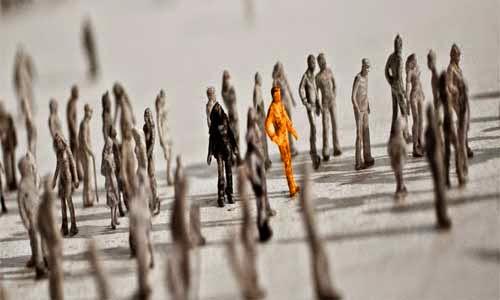
When people are included in a group they perceive that they are part of something greater than themselves and, at times, this leads them to free themselves from their moral values by making them make decisions and take actions that they would never have done if they had been alone. Or at least this is what has happened over the centuries.
Now, a very interesting study done at Carnegie Mellon University has delved deeper into the phenomenon to help us understand how it is possible that "good" people can commit evil deeds or obviate their moral principles.
This study compared how people's brains worked when they were alone and when they were in a group. The research was inspired by an experience the experimenter had during a football match. At the time, the husband wore his team's cap but was surrounded by fans from the opposing team and thus was repeatedly insulted. The psychologist thus thought that if she had worn the same hat herself, the men would have measured their tongue a little since she was a woman. But he was wrong. At that point he began to wonder if there was some neurological reason that justified what happened.
When the "me against you" becomes "us against them"
Basically, there are two main reasons why people behave differently when they are part of a group, these are:
1. They feel anonymous
2. They believe they are less likely to be punished for their behavior
However, this study was intended to go one step further, the researchers wondered if, when we're in a group, we also lose our morality.
A number of people were then asked to answer some questions to establish what their concept of morality was. Thus, the researchers were able to create personalized instructions such as: "I stole food from a common refrigerator" or "I always apologize after tripping someone".
Later these people became involved in a game, and while they were playing their brains were scanned. The difference was that in some cases they played alone while in others they were in a group.
What were the results?
When people played alone and faced moral judgments their brains exhibited increased activity in the medial prefrontal cortex, an area associated with thinking about ourselves. These findings are not unusual when one considers that people identified deeply with the claims being shown to them.
The surprising finding was that when people played in groups these same moral statements generated a less intense response, suggesting a weaker level of identification with their own ideals and beliefs.
The diffusion of the ego
According to the researchers, our moral judgments become more flexible when we are part of a group because we feel our personality is diluted. We become anonymous because our priorities change from "I" to "we". Therefore, we adapt our values to the beliefs of the mass, which also has an impact on our brain. This transformation becomes a boomerang since by stopping to recognize our certain values as our own we do not feel remorse and we give free rein to dishonest or even violent behavior.


























